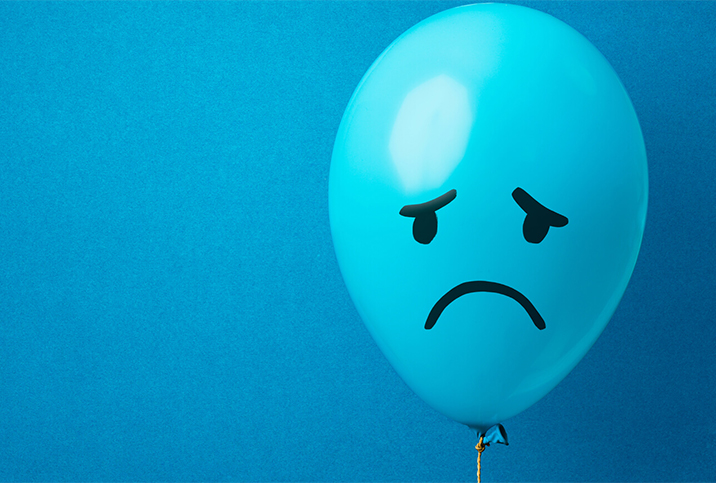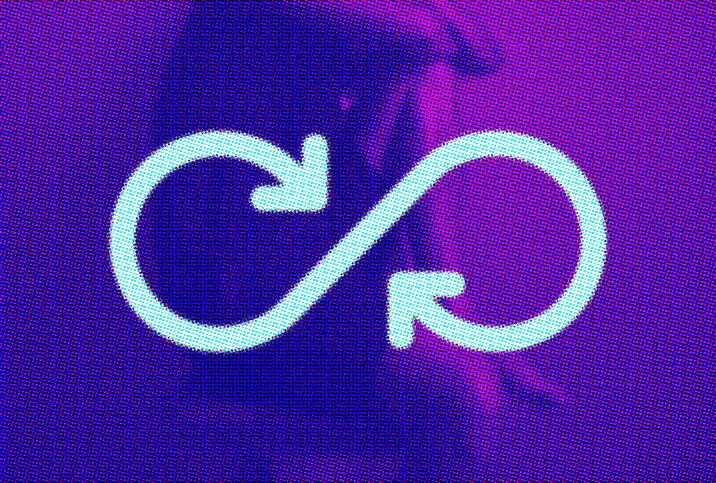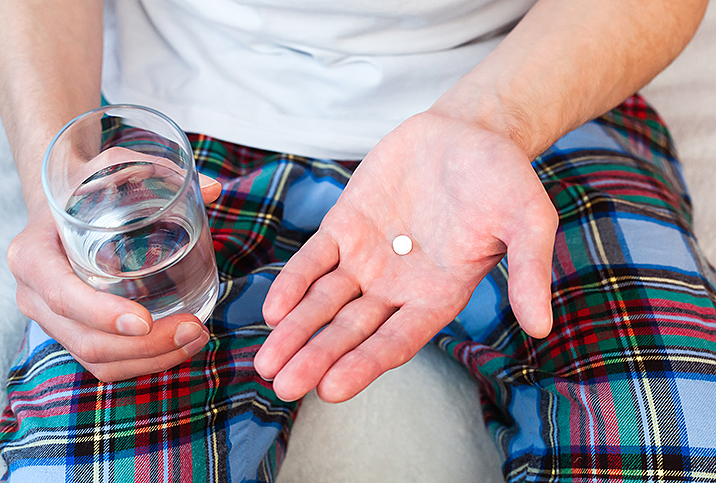Mental Health and ED: Myths & Misconceptions

You can count depression as one of the most common mental disorders in the United States for both men and women. For men, a widespread sexual disorder is erectile dysfunction (ED). What may surprise you is the fact they are related, but that’s where the fact seems to separate from the fiction.
Here’s the information you need to debunk those myths and misconceptions and get the help you need.
Myth: ED cannot be caused by depression.
Reality: Humans experience good stress and bad stress, and depression can be a source of bad stress. And, yes, depression is a common cause of erectile dysfunction.
When a man’s brain experiences healthy stress—like he’d get from strenuous exercise or sexual excitement—his body releases testosterone. When a man is sexually aroused, the extra testosterone helps to release neurotransmitters that relax the blood vessels in the penis, and that leads to an erection.
However, when a man’s brain is under bad stress—obsessing about work issues or financial worries—his body releases the stress hormone called cortisol instead. This hormone triggers release of neurotransmitters that constrict the blood vessels in the penis. When blood cannot flow properly to the penis, ED can result.
Giddy psychologist Dr. Susan Ansorge breaks down the link between ED and depression in the ED Guide video series. Click here to watch the video.
Myth: Depression is the only psychological cause of ED.
Reality: Common psychological causes of erectile dysfunction, in addition to depression, include anxiety, low self-esteem and stress.
After a man experiences his first episode of ED, he may become overly concerned that the issue will occur again. This can lead to performance anxiety, which can further contribute to erectile dysfunction. Low self-esteem can be attributed to prior occurrences of ED or can be the result of other issues not related to sex. Stress can also impact a man’s ability to achieve and maintain an erection.
Myth: Medication is the only way to manage depression and ED.
Reality: Medication is just one type of treatment that’s suitable for depression and erectile dysfunction. Psychotherapy is another option and can be effective by itself or with medication therapy.
Studies show that cognitive-behavioral therapy (CBT) is particularly effective in helping people with depression and anxiety. Exercise and losing weight can be beneficial; exercise boosts serotonin, endorphins and other brain chemicals.
A study published in 2005 found that pelvic floor exercises helped 40 percent of ED sufferers get back their normal erectile function. The study also found another 35.5 percent of the test group improved their ED issues.
In addition to therapy and exercise, penile injections, vacuum pumps, surgical implants and wearable constriction devices such as Eddie by Giddy® (an FDA-registered Class II medical device) are other common treatment methods for ED.
Myth: Depression and ED are uncommon.
Reality: An estimated 264 million people suffer from depression worldwide and, tragically, approximately 800,000 people die from suicide each year. Suicide, which can be the result of severe depression, is the second-leading cause of death in people between the ages of 15 and 29.
A 2018 review in the Journal of Sexual Medicine estimated that ED affects about a third of all men, and that makes it the most common form of sexual dysfunction in America. Yet both are often undiagnosed due to the stigma attached with the disorders and the unwillingness, especially by men, to talk to a doctor.
Myth: Only women get depressed.
Reality: Men may not be as likely to admit they are depressed because cultural norms make it difficult for men to talk about their feelings, but they do suffer from depression.
Some men worry that admitting depression will make them look weak; however, according to the National Institute of Mental Health, more than 6 million men in the United States suffer depression every year. Depression can have serious consequences for men, as they are more likely to take their own lives than women: The suicide rate for men is nearly four times higher than the rate for women.
Having more knowledge about depression and erectile dysfunction will help you combat misinformation. If you have noticed some signs and symptoms of depression or ED, it’s recommended that you see a doctor immediately. A health professional can suggest some new lifestyle strategies for you and have you follow a treatment plan that fits your unique needs.


















